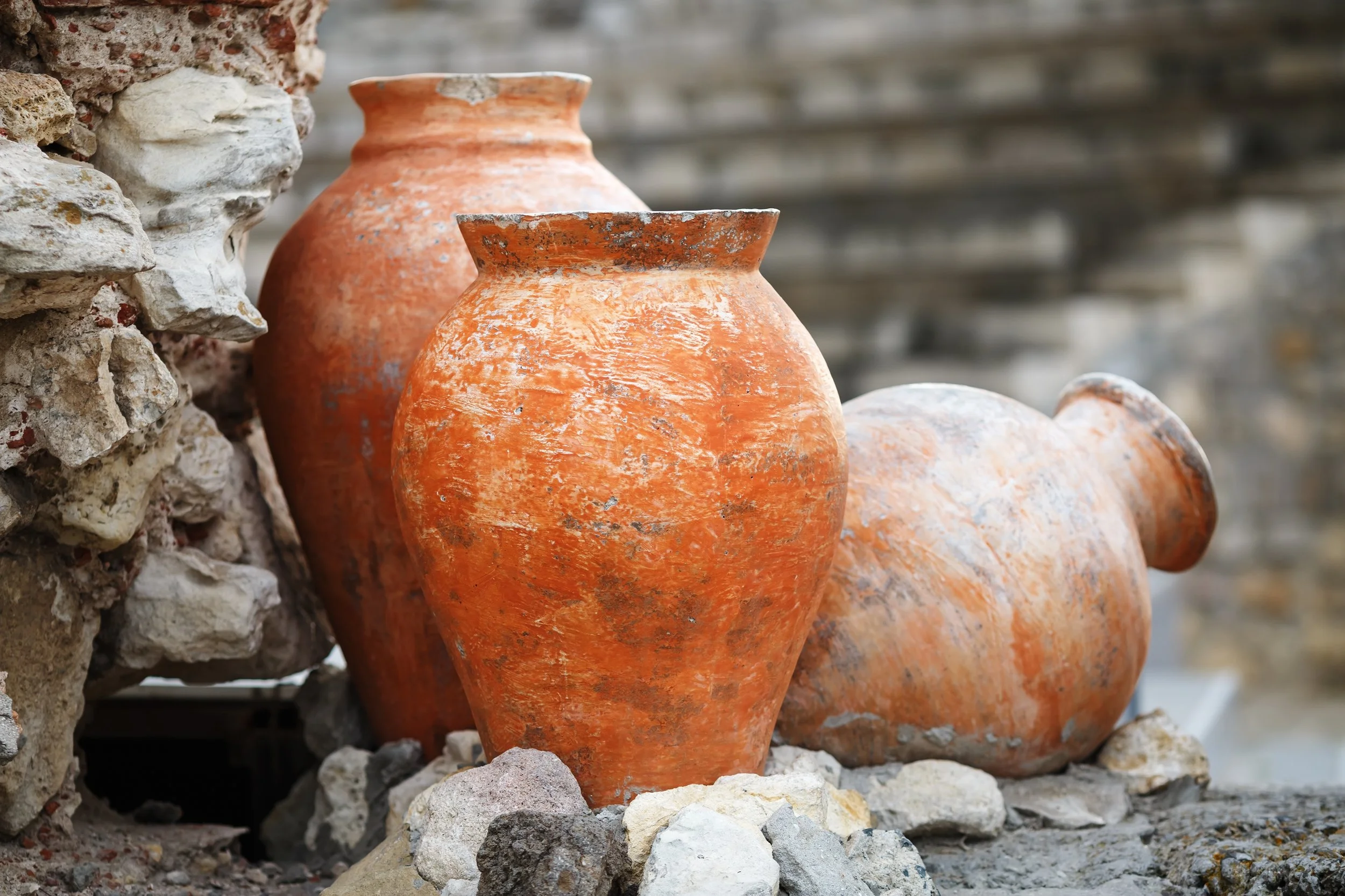To Give Everything Up or Not, Matthew 13:44-46
“The kingdom of heaven is like treasure hidden in a field. When a man found it, he hid it again, and then in his joy went and sold all he had and bought that field. Again, the kingdom of heaven is like a merchant looking for fine pearls. When he found one of great value, he went away and sold everything he had and bought it.” (NIV)
These two short parables picture the kingdom of heaven as a “hidden treasure in a field” and as “a pearl of great value.” In both, the tertium comparationis (point of the parable) is the resolution—motivated by joy in the first case and by awe in the second—to risk everything to acquire what is considered supremely precious. Verse 44a says that “The kingdom of heaven is like treasure hidden in a field.” The custom of hiding valuables underground was very widespread in Jesus’ time. Flavius Josephus comments:
Yet there was no small quantity of the riches that had been in that city still found among its ruins, a great deal of which the Romans dug up; but the greatest part was discovered by those who were captives, and so they carried it away; I mean the gold and the silver, and the rest of that most precious furniture which the Jews had, and which the owners had treasured up underground, against the uncertain fortunes of war (The Wars of the Jews, 7.5.2).
Hiding treasures underground was also common practice in Mesoamerica until recently. My great-grandmother, who was born in the second half of the 19th century in Nicaragua and lived until the 1960s, told me once that she kept her gold and silver jewelry in a clay jar buried in the patio of her house. I wish she had told me exactly where it was, but she never did.
Anyway, in v. 44b Jesus goes on to say: “When a man found it, he hid it again, and then in his joy went and sold all he had and bought that field.” The man who discovered the treasure was probably a day laborer hired to work a field, and the treasure may have belonged to someone who had died without being able to share its location with anyone (probably like my great-grandmother). After discovering it and becoming aware of its value, the man buried it again and sold all his possessions to buy the field and thus to have a right to the treasure he had found. That is the end of the first story.
Some see a moral problem here because, according to rabbinical traditions, the owner of the field was by right the owner of the treasure, and the duty of the man who found it was to report his discovery. “Treasure that is presumed to have an owner cannot be claimed by the finder,” Bernard Brandon Scott says (Hear Then the Parable, p. 399). The man was supposed to know this, and for that reason he went and bought the field. However, Joachim Jeremias is probably right when he says, “The morality of his action is not under consideration. Nevertheless, it is worth noting that his action was formally legitimate, as he had first bought the field” (The Parables of Jesus, p. 199).
Matthew 13:45-46 says, “Again, the kingdom of heaven is like a merchant looking for fine pearls. When he found one of great value, he went away and sold everything he had and bought it.” In this second parable, Jesus tells of a merchant—most likely a wealthy man—searching for fine pearls. He found one that impressed him so much that he went and sold everything he had to acquire it. Pearls were highly prized in ancient times. According to Pliny, Cleopatra owned one worth 100 million sesterces, which is more than three million dollars in today’s money (Pliny, Natural History IX, 119ff.). So, Jesus may have been thinking of such a pearl. Again, the emphasis is on the willingness to give up whatever is necessary to obtain what is considered to be of inestimable value. Not that the kingdom of heaven is something we can literally buy, but its reception involves a renunciation, a personal sacrifice that not everyone is willing to make, like the rich young man in Matthew 19:16, 21-23:
“Just then a man came up to Jesus and asked, ‘Teacher, what good thing must I do to get eternal life?’... ‘If you want to be perfect, go, sell your possessions and give to the poor, and you will have treasure in heaven. Then come, follow me.’ When the young man heard this, he went away sad, because he had great wealth. Then Jesus said to his disciples, ‘Truly I tell you, it is hard for someone who is rich to enter the kingdom of heaven.’”
The apostle Paul, for his part, makes clear what the kingdom meant to him,
“But whatever were gains to me I now consider loss for the sake of Christ. What is more, I consider everything a loss because of the surpassing worth of knowing Christ Jesus my Lord, for whose sake I have lost all things. I consider them garbage, that I may gain Christ and be found in him, not having a righteousness of my own that comes from the law, but that which is through faith in Christ—the righteousness that comes from God on the basis of faith.’” (Philippians 3:7-9)
So, are we willing to give everything up for the kingdom or not? That is the question.







